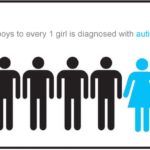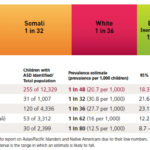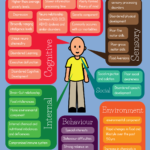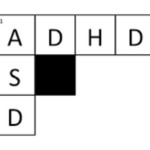Autism and religion are rarely associated with one another. In a study done at Boston University, individuals with ASD were about 20% less likely than neurotypical people to identify as Christian, approximately 10% more likely to identify as atheist, and nearly 10% more likely to create their own religious belief system. However, the reasons behind […]
Late Diagnosis, Misdiagnosis, No Diagnosis: The Intersection of Sexism and Ableism Towards Autistic Women
Though autism can affect anyone regardless of sex or gender, an individual’s gender will affect their disorder and how others view it. Sexism against women and ableism (discrimination against the disabled by the non-disabled) are social forces that interact with each other – they are intersectional. Women with autism spectrum disorder (ASD) face challenges that […]
Intersectionality: Race, Socioeconomics, and Autism Spectrum Disorder
Though ASD is known to occur in children and adults from all backgrounds, there are glaring differences in diagnosis and treatment across racial, ethnic, and socioeconomic groups. In the United States, minority and lower-middle class children are diagnosed later and treated less effectively than wealthy Caucasians, leading to severe disparities in function between ASD children […]
Intersectionality: Autism & LQBTQ+
Living in a world run by social norms, it can be difficult to be a minority in several respects. When an individual belongs to multiple minorities, this can make the world even more confusing. Individuals on the autism spectrum tend to be less receptive of social expectations or constraints, which thereby allows them to be […]
Comorbidity in Adolescence: ASD and Anxiety
More often than not, a diagnosis of autism will be followed by a second diagnosis. The incidence of comorbid conditions with autism is 70%, according to one study following autistic children ages 10 to 14 (Smirnoff et al, 2008). The study found that the most common comorbidity was anxiety, which affected thirty percent of children […]
Comorbidity in Adolescence: ASD and Depression
Introduction Diagnosis and treatment of depression in individuals with autism varies from the approach to find and help neurotypicals experiencing depression. A study done at Vanderbilt University with 1272 autistic children found that 20.2% of young adults aged 13-17 with autism also have a depression diagnosis. That is nearly twice the percent of adolescents in […]
Comorbidity in Adolescence: Immune Dysregulation
In addition to the psychological comorbidities associated with Autism Spectrum Disorder, studies have shown that there is also a variety of medical comorbidities associated with ASD. Immune dysregulation is perhaps the most widespread of these and has been shown to contribute to an array of immuno-inflammatory diseases, including lupus, MS, celiac disease, inflammatory bowel disease, […]
Comorbidity in Adolescence: ASD and ADHD
Background In the last decade, the field of study regarding the co-occurrence of autism spectrum disorder (ASD) and attention deficit hyperactivity disorder (ADHD) has grown significantly due to the release of the DSM-V in 2013, where a dual diagnosis of these two conditions became possible. Prior to 2013, the DSM-IV said an ASD diagnosis restricted […]






